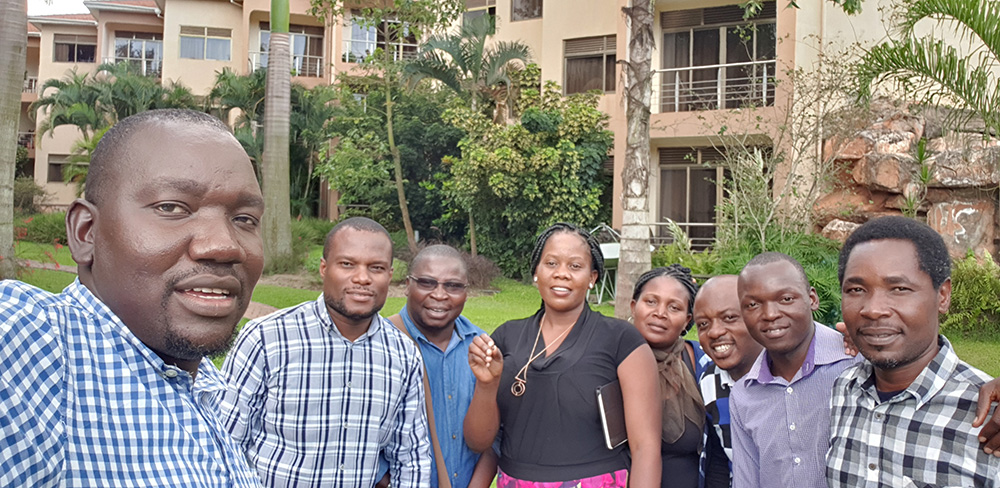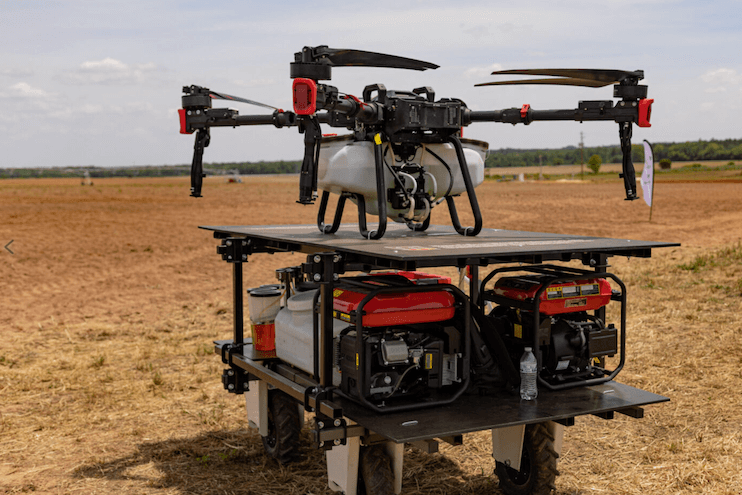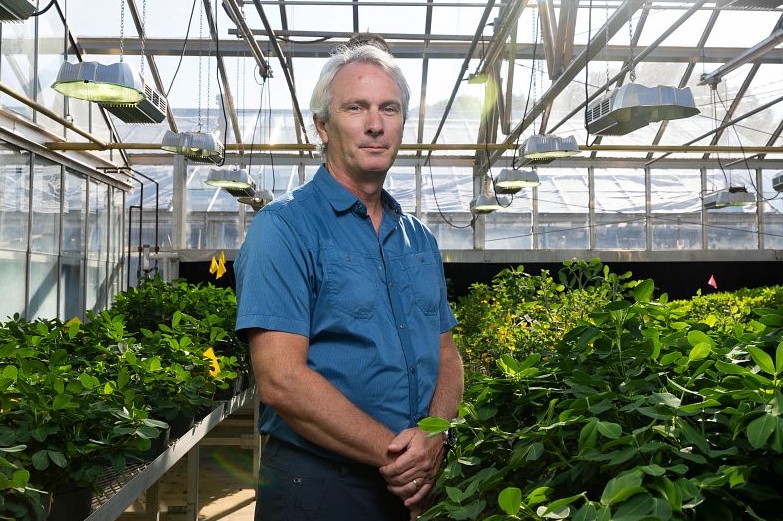Groundnuts are an important crop in Uganda, both as a cash crop for farmers and an economical source of protein for consumers. But groundnut producers face challenges in the field, from unpredictable rainfall to acidic soils to a particularly difficult menace, groundnut rosette disease. These types of challenges are the reason that plant breeders systematically create new varieties, targeting the genetic traits that carry resistance or improve yield.
Software developed by the Integrated Breeding Platform helps them to do that.
David Okello, the head of the groundnut improvement program for Uganda’s National Agricultural Research Organisation (NARO), began using IBP’s Breeding Management System six years ago and helped shape the current version and adapt it for his breeding program in Uganda.
“Now, I can design my nursery and trials in BMS, print the layout, and use barcodes for seed inventory. All on-station data is captured and managed in BMS,” Okello said.
One of the most tangible benefits of the system is data management. Rather than a stack of papers on a clipboard – or even a folder of Excel spreadsheets on a computer drive – data is stored in the cloud where the team can collaborate, the records are safe from natural disaster and data grows season after season. It also reduces errors inherent in hand-collected data.
“All these tasks are done digitally, and using our cloud version, our data is safely stored,” Okello said.
Building on NARO’s success with the BMS – which helped keep track of more than 100 disease- and pest-resistant breeding lines developed by the program – Okello is helping to pass the technology to colleagues in national programs across East and Southern Africa.
A small group of groundnut breeders in Uganda, Mozambique, Malawi and Zambia already collaborate to share germplasm and knowledge to deliver better varieties to local farmers. By implementing BMS through a commissioned project with the Feed the Future Innovation Lab for Peanut, the breeders will all have access to modern data management and analytic tools in a centralized system. The efficiency can make their jobs easier and get improved varieties to farmers quicker.
Okello is the lead scientist on the project for the Peanut Innovation Lab. He hosted plant breeders and their technicians from the four African countries in Kampala last month. They trained on the BMS and received some basic equipment from the Feed the Future project, including laptop computers, barcode printers, internet routers and tablets to manage the data collection in the field.
“The main advantage of BMS is to streamline the work of plant breeding. Most of the activities involved are time-consuming and BMS assists with that,” said Mable Mulanya, an IBP support specialist based in Kampala.
At the same time, BMS allows plant breeders precision, such as the ability to plot trials on a computer and keep track of seed planted in each plot with barcodes.
The system handles data across all phases of the crop improvement cycle – from managing trials, nurseries and seed inventory to running statistical analyses and supporting breeding decisions through the gradual integration of genetic markers.
“Thousands are using the program now,” Mulanya said. “The program has visibility around the world with national programs and private businesses.”
Mulanya ran the week-long workshops with the visiting scientists.
The researchers and technicians came with data in hand, so that they left not only trained on the BMS system, but with their own modules set up and ready to work.
“By the time they left Uganda, they were ready to use all the co-functionalities of BMS. They are ready to run trials,” Mulanya said.
The group of researchers will keep in touch with each other and BMS throughout the cropping cycle and meet again in May, 2019 for another workshop, this time covering data analysis.
“The crossing design, pedigree of developed lines, salient attributes of the developed lines needs – all these steps used to be captured manually as a standalone process and stored on shelves. Retrieving and using that information was very challenging, if not impossible, particularly when the person who wrote down the data wasn’t there. The BMS allows all that information to be housed in one unit,” Okello said.
“As our breeding program is moving towards marker-assisted breeding, BMS will be even more handy. From planning, to genotyping data management, to SNP mining and introgression of useful QTLs” – all benefit from BMS.
In addition to Okello, the training included Justus Chintu of the Department of Agricultural Research Services in Malawi; Amade Muitia from the Mozambique Agricultural Research Institute (IIAM); Tonike Malema from Zambia; Mary Jacinta de Carvalho from Mozambique; Lutangu Makweti of the Zambia Agricultural Research Institute; Owiny Ronald from Uganda; and Sinkala Willard from Zambia.
“The training went well and we achieved a lot,” Okello said.







